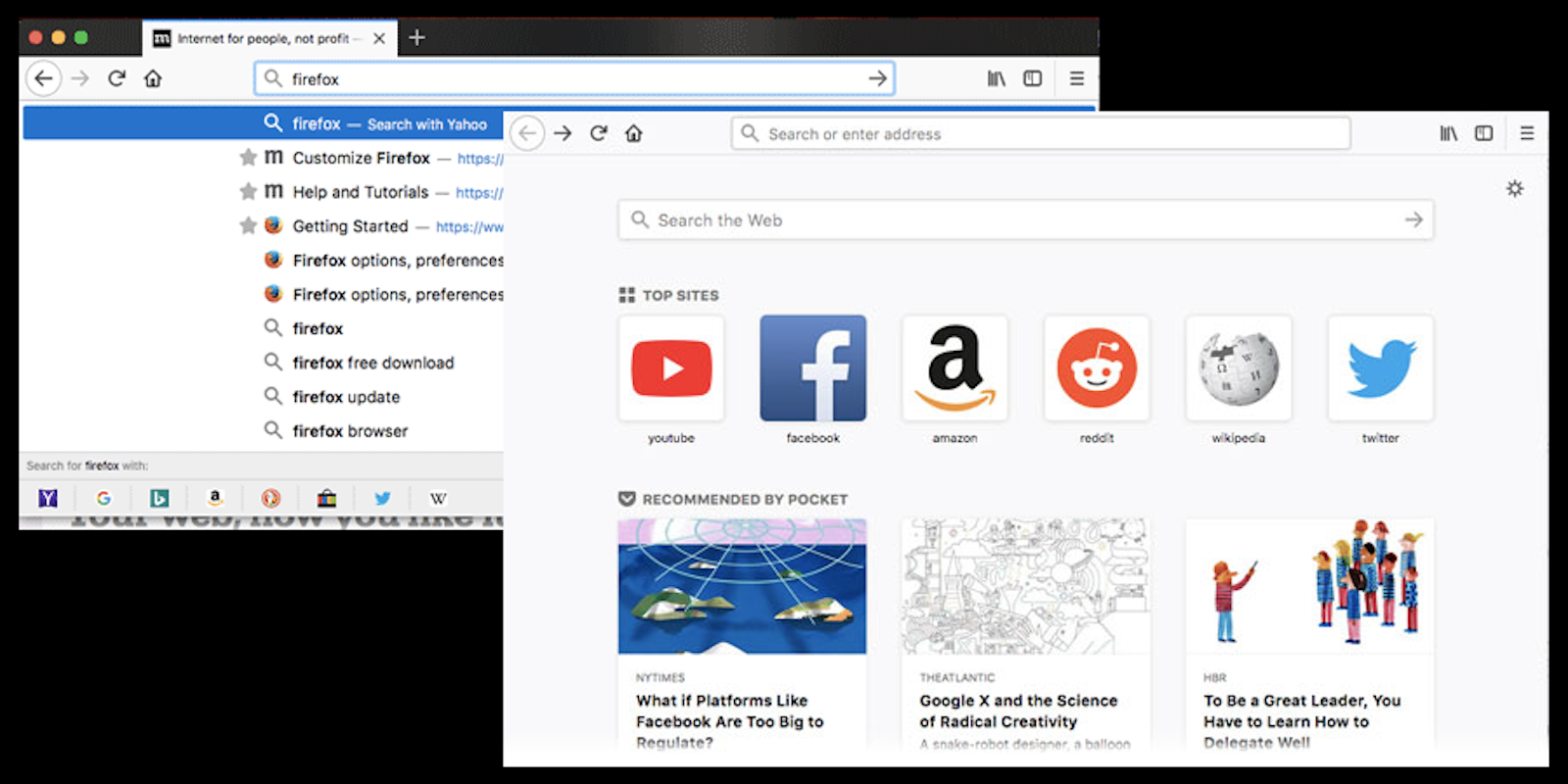Mozilla, maker of Firefox, has good news for users of its web browser concerned about where their data is going. In the near future, the company plans to block user tracking on websites by default. Mozilla explained the move in a blog post.
“Many of the harms of unchecked data collection are completely opaque to users and experts alike, only to be revealed piecemeal by major data breaches,” the Mozilla team wrote on its website. “In the near future, Firefox will—by default—protect users by blocking tracking while also offering a clear set of controls to give our users more choice over what information they share with sites.”
It’s a great move for internet users on a number of fronts. Firstly, by blocking user tracking, Firefox should be able to load webpages far more quickly. A Ghostery study published in May found that more than half the time spent loading an average webpage was due to third-party trackers. Secondly, it’ll remove creepy cross-site tracking—the annoying phenomenon of ads following you across the web day after day, site after site.
Mozilla also hopes that by blocking user tracking on websites, it will mitigate harmful or deceptive practices. It should help keep third-parties from fingerprinting users, for example, or keep a site from secretly mining cryptocurrencies in the background while you’re on their page.
The solution may not be perfect—some sites may still want user data in order for you to view their content—however, when Mozilla pushes this update, sites will have to ask users permission to do so first. This should make the prevalence of data tracking more visible to web users who may not typically think about it.
Mozilla plans to roll out a trial of this feature in September, the Register reports. If it’s successful, Firefox 63 will block slow-loading trackers, and Firefox 65 will completely block user tracking and cross-site tracking by default.
A number of different browsers offer tools to help users minimize data tracking across the web (Safari in iOS 12, for example, will block social media trackers by default). But this may be the most extensive anti-tracking measure thus far.
H/T the Register


